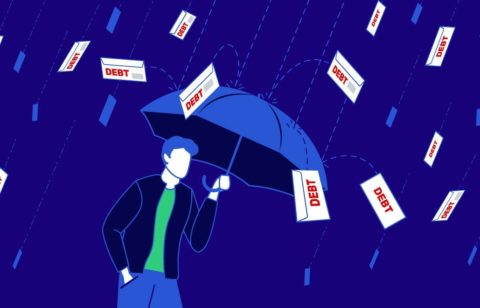Stopping collection agencies from forcing you to pay your debts is not possible – unless you start paying them. However, you can stop them from calling you and harassing you to make your payments on time.
The FDCPA or Fair Debt Collection Practices Act gives you the adequate protection and the right to tell these abusive collection agencies off if they become abusive and downright disrespectful. This law is enforced by the FTC or Federal Trade Commission to make sure that the three goals are met. These goals include:
- Cease the abusive and harassing practices of debt collectors and similar organizations.
- Encouraging collection agencies to practice fair debt collection while providing consumers with information about their rights.
- Creating a venue for abused consumers to voice out their complaints against violating debt collectors.
FAQs about Debt Collection Practices
Here are some of the frequently asked questions about debt collection practices.
What laws are debt collection agencies subjected to?
There are two main laws that debt collection agencies must follow. The more prominent is the FDCPA. The other is the Fair Credit Reporting Act wherein the collector should practice caution and accuracy in filing data in a debtor’s credit report.
How should the debt collection communicate with a debtor?
A debt collection agency commonly initiates contact via phone call. They should provide the following details: name of the caller, designation, collection agency, the creditor being represented and the amount of debt that you owe them. Within the next 5 days, the debt collector must send you a written letter with all the above mentioned details and also whatever you talked about during that initial phone call. There may be instances when you will receive a written letter prior to the call.
What if the debt mentioned is not mine?
If the debt is not yours, you can tell the collection agency while you are conversing and you should follow through with a written letter to reiterate that you do not owe that particular debt. Make sure you have a copy of that letter. Pay for a return receipt as well. The collector should stop contacting you.
Am I allowed to ask for verification?
Yes. After receiving the first written letter from the creditor, you can send you response through mail to request for verification. This should be done within 30 days after you received the collector’s letter.
Can I tell them to stop calling me?
Yes. This can be done even if you are the alleged debtor and they should honor your wishes. When you request for them to stop calling, make sure that you support that with a written letter with a request for return receipt.
I am an identity theft victim, can I stop debt collectors from calling me?
Yes. Once you send the debt collector documentary proof that are an identity theft victim, the debt collector should stop calling you. Provide the debt collector a copy of the police report and an affidavit of fraud. An acknowledgement letter from the concerned company stating that the debt is not tagged under your account will also help prove to the debt collector that you are not the debtor they are trying to contact. Aside from ceasing any further contact with you, they should investigate the matter further and notify the creditor of the identity theft. You should also be given adequate information about the crime committed against you.
What if the debt collectors calls my family, friends and co-workers?
This is not allowed under the FDCPA unless they are merely trying to get information about where to contact you. They are not allowed to discuss the debt to someone else – unless it is your authorized representative (lawyer) or your spouse. You can tell them to stop and if they don’t, you can file a complaint against them.
What can I do about threatening and rude calls?
Calls are harder to prove. But when collectors start acting abusive, take down as much information as you can about the call. Get the name of the caller and how they abused you. Write them a letter requesting that all communication should continue through writing and they should stop calling you. Indicate in that letter the abusive behavior that prompted you to make that request. Get a return receipt request so you have a copy of this particular correspondence. Then, send a letter of complaint to the FTC.
Can the debt collector collect an amount that is higher than what I owe?
Under the FDCPA, this is not allowed. But check with your individual state laws to check if collectors are allowed to put charges on top of your debt.
How can I file a complaint against the debt collector?
You have a year to file the complaint with the FTC regarding any violation done by the collector. This will be included in the complaints forwarded to the Congress every year. While your individual letter may not prompt them to take action, a compilation of complaints will. Consumer letters are the main source of information that will lead the law to take action. You can visit your local Attorney General (for state laws violated) and the Federal Trade Commission (for federal laws violated – e.g. FDCPA)
National Debt Relief is a legitimate company who sincerely wants to help debtors get out of their debt. We will coordinate with the collectors on your behalf so all these abusive treatments will cease. Give us a call and we will deal with them for you. You can fill out the form on this page and we will have a debt professional call you to help you come up with a payment plan that you can afford. Act on your debts to avoid being harassed by collection agencies.






